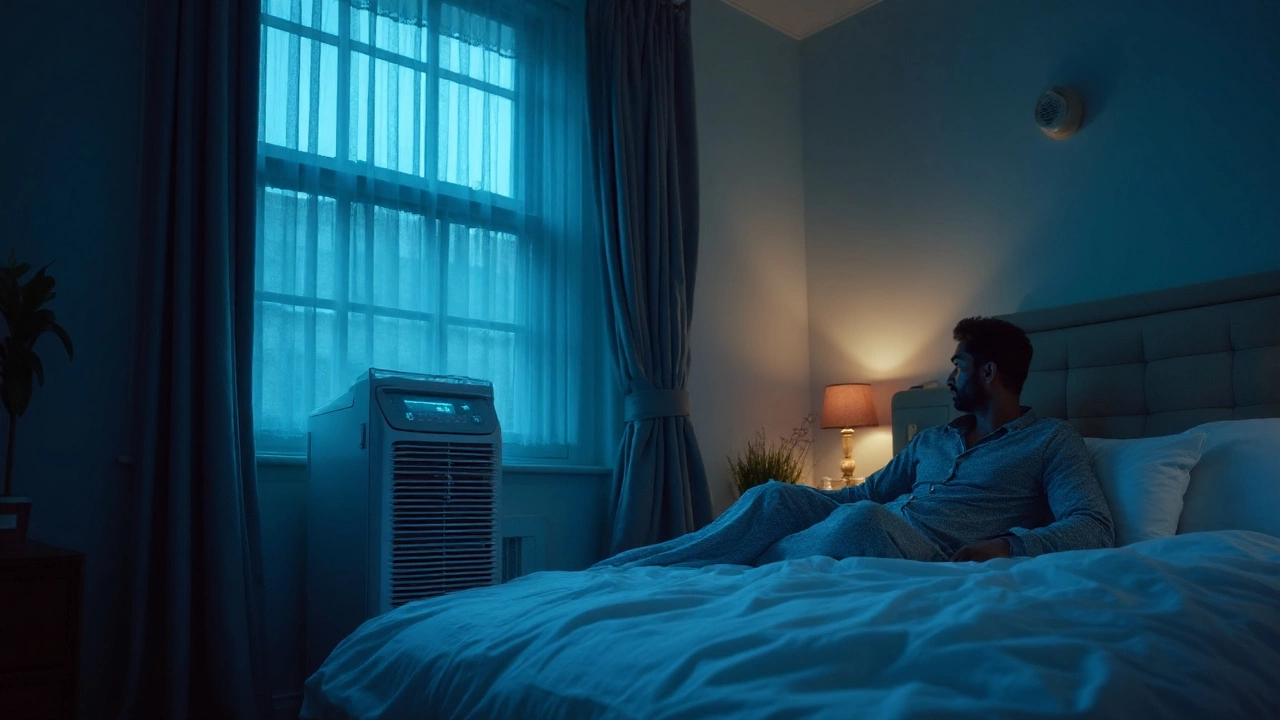If you’ve just bought a portable air conditioner or are thinking about one, the first thing on your mind is probably the price tag. But the real question is: how much will it cost to run every day? In the UK the average electricity price is about 34p per kWh, so figuring out the kWh your unit uses is the key to avoiding surprise bills.
Most portable ACs are rated between 800 and 1,500 watts. That means a 1,200‑watt model pulls 1.2 kW per hour. Run it for eight hours and you’re at 9.6 kWh. Multiply that by the current unit price and you’re looking at roughly £3.30 a day, or about £100 a month if you keep it on that long every night.
Grab the label on the back of your AC – you’ll see a number like “1200 W”. Convert watts to kilowatts (divide by 1,000). Then decide how many hours you’ll actually use it. Multiply kW × hours = kWh. Finally, multiply kWh by your electricity rate.
Example: 1,200 W ÷ 1,000 = 1.2 kW. Use it 5 hours a day → 1.2 × 5 = 6 kWh. At 34p per kWh that’s £2.04 daily. Simple math, big impact on your budgeting.
1. Choose an Energy‑Star or EU‑label model. Those units are tested for efficiency and often use inverter technology, which drops the power draw when the room reaches the set temperature.
2. Set the thermostat a few degrees higher. Every degree you raise can shave 3‑5% off the power use. A comfortable 24 °C is usually fine for most homes.
3. Use the timer or eco‑mode. Let the AC run only when you’re home. Many portable units let you program on/off cycles that match your schedule.
4. Improve airflow. Place the exhaust hose in a window kit that seals tightly. A poorly sealed window forces the AC to work harder, sucking more electricity.
5. Combine with fans. A small desk or floor fan spreads the cool air faster, letting the AC cycle off sooner.
Finally, keep filters clean. A clogged filter reduces airflow and can increase power consumption by up to 15%.
In short, the energy cost of a portable AC isn’t a mystery – it’s just numbers you can control. Pick an efficient model, run it only when needed, and use the built‑in eco features. Doing those simple steps can keep your summer cool without melting your wallet.

Is it OK to run a portable AC nonstop? Get a straight answer on safety, energy costs, and lifespan-plus setup tips, cost math, and troubleshooting that actually helps.